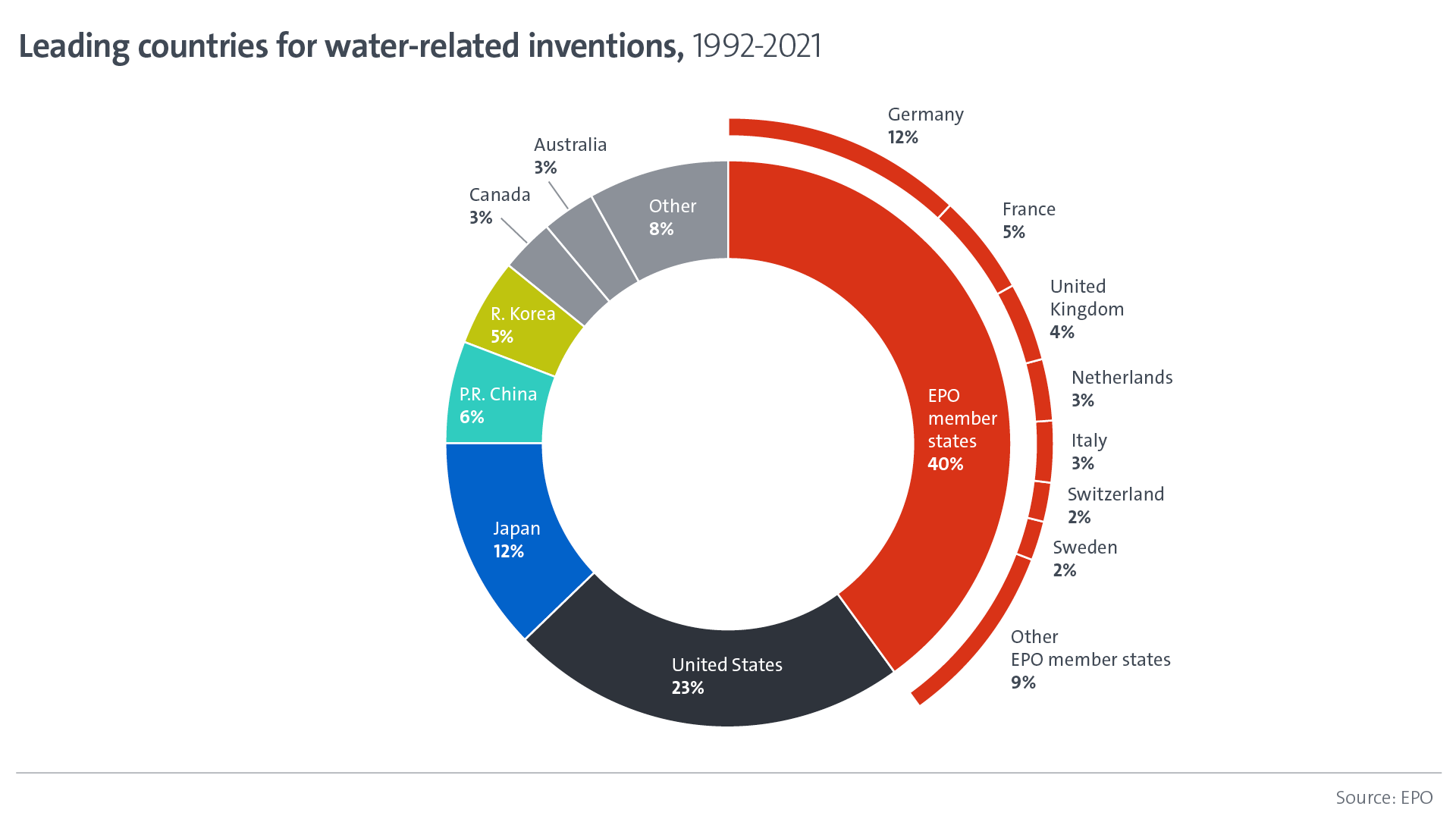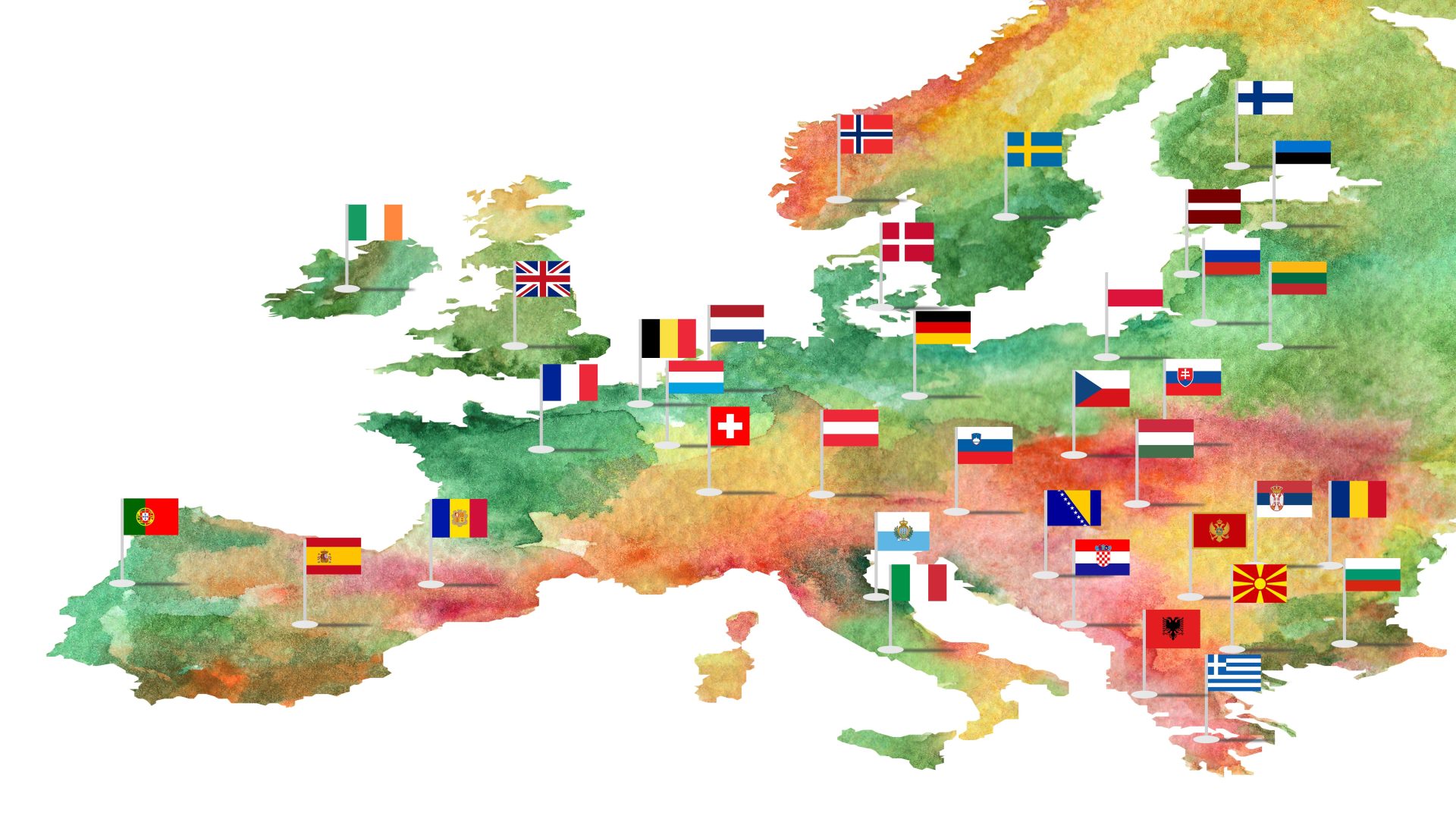Europe is leading globally in the development of new technologies in the water sector, according to a study published by the European Patent Office (EPO).
The report, which looks at international patent families (IPFs)[i], finds that companies, researchers and inventors from the EPO’s 39 member states accounted for 40% of all IPFs in water-related technologies in 1992-2021. European inventors lead in all major areas of water tech, from potable water harvesting and efficient water use to wastewater treatment and flood protection.
According to the United Nations, 2.2 billion people lacked access to safely managed drinking water in 2022, and 3.5 billion lacked safe sanitation services. In addition, droughts and floods cause large numbers of deaths and billions in economic losses every year.
“Water is one of our most precious resources,” said EPO President António Campinos. “Given the threats posed by climate change, innovation needs to grow even faster in the coming decades – in both the supply of water and protection from water-related hazards. Our new study and tools provide policymakers and the public with high-quality data and analysis of the water technology landscape, and support inventors in developing innovative solutions to meet our water challenges.”

Water treatment biggest focus for inventions, Europe ahead
According to the study, there were over 22,000 IPFs filed worldwide between 1992 and 2021 in water-related technologies. The largest area for inventions is water treatment, making up about 60% of all IPFs. The fastest growing area in recent years is efficient water treatment, and especially automation and control of treatment operations. Europe has a strong lead in water inventions, followed by the US (with 23% of all water-related IPFs), Japan (12%), China (6%) and Republic of Korea (5%). The leading European countries are Germany (12%), France (5%), the UK (4%), the Netherlands (3%) and Italy (3%).
Large companies dominate but university innovation on the rise
The top patent applicants in water technologies are Veolia (France), Xylem (USA) and Kurita (Japan). But the contribution of universities and public research organisations has grown significantly, from under 5% of all water-related IPFs in the 1990s to 14% by 2017-21. The top universities/research institutes are the Chinese Academy of Sciences, Nanjing University (China) and CNRS (France).
Improving access to information about water technologies
Working with national patent offices across Europe, the EPO has also developed a new technology platform on water innovation. The free platform enables scientists, governments and businesses to more easily navigate its online patent database containing over 150 million documents, and thus find information about the latest advances in the water sector. In addition, the EPO has updated its free Deep Tech Finder to help investors and potential partners connect with over 100 startups with European patent applications for water-related inventions from all over Europe.
Further information
- Read the full report
- Explore the new platform on water technologies
- Find European water technology startups using the EPO’s Deep Tech Finder
- See the dedicated water innovation pages of the EPO’s Observatory on Patents and Technology
[i] Each international patent family (IPF) represents a unique invention for which patent applications have been filed at a regional patent office or at two or more patent offices worldwide.



